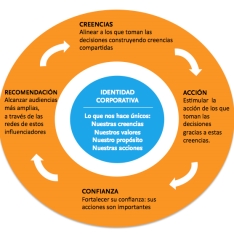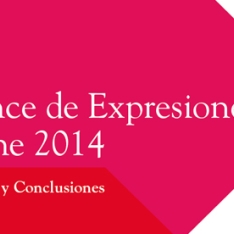Loading...
- Agenda 2030 & ODS (33)
- Alineamiento y Cultura Corporativa (84)
- Analytics & Big Data (18)
- Bienestar y Engagement (10)
- Chief Communications Officer (99)
- Co-Creación (11)
- Comunicación Externa (61)
- Comunicación Política (12)
- Consumidores (24)
- COVID-19 (28)
- Digitalización (63)
- Diplomacia Corporativa (6)
- Diversidad & Inclusión (26)
- Empleados (34)
- Empresa Con Futuro (15)
- Estrategia (99)
- Ética (39)
- Fake News y Desinformación (2)
- Geopolítica (5)
- Global Issues (64)
- Gobierno Corporativo (37)
- Indicadores No Financieros (74)
- Innovación (68)
- Internacionalización (18)
- IA, Metaverso y Nuevas Tecnologías (1)
- Gestión De La Reputación (1)
- Liderazgo (80)
- Lobby (3)
- Marca Corporativa (98)
- Marketing (16)
- Medios Sociales (7)
- Millennials (2)
- Neurociencia (1)
- Propósito & Valores (117)
- Publicidad & Patrocinios (4)
- Rankings & Premios (5)
- Reputación Del CEO (23)
- Reputación País (11)
- Reporting No Financiero (23)
- Riesgo Reputacional (76)
- Sostenibilidad & Responsabilidad Social (95)
- Stakeholder Engagement (76)
- Storytelling & Narrativa (17)
- Tendencias (73)
- Valoración De Los Intangibles (66)
- Comunicación Interna (55)
- Transparencia (44)
Published by Unai Admin
17/07/2025
Published by Unai Admin
17/07/2025
Published by Unai Admin
17/07/2025
Published by Unai Admin
17/07/2025
Categories
Categories
Published by Unai Admin
17/07/2025
Published by Unai Admin
17/07/2025
Published by Unai Admin
18/07/2025
Categories
Tags
- medición
- gestión
- reputación corporativa
- ventaja competitiva
- identidad
- alinear
- percepción
- gary davies
- rosa chun
- métricas
- corporate reputation
- competitiveness
- university of manchester
- uk
- imd business school
- switzerland
- reputation leadership
- universidad de manchester
- reino unido
- corporate reputation and competitiveness
Categories
Tags
- conscious capitalism
- capitalismo humanista
- confianza
- líder
- conciencia social
- alma
- valor compartido
- shared value
- sociedad
- ciudadanía
- john quincy adams
- corporate excellence
- centre
- john mackey
- co-ceo de whole food market
- raj sisodia
- harvard business review press
- president of the united states john quincy adams
- united states
- co-ceo of whole food market
Published by Unai Admin
18/07/2025
Published by Unai Admin
18/07/2025
Página
of 16














